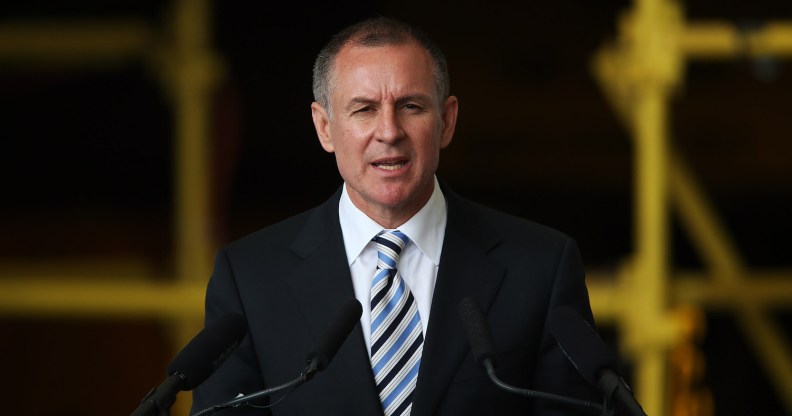South Australia Premier apologises to LGBT+ people affected by discriminatory legislation

The South Australian Premier Jay Weatherill has apologised to members of the LGBT+ community who have been affected by discriminatory legislation.
He referred to the case of David Bulmer-Rizzi who died earlier this year after falling down a set of stairs and cracking his skull whilst on his honeymoon in South Australia.
As South Australia does not recognise same-sex marriage, his widower Marco Bulmer-Rizzi, said he was told the death certificate would read “never married”.
The South Australian Premier Jay Weatherill has since called Bulmer Rizzi directly to explain that he hopes the situation can be fixed with legislation.
But speaking yesterday, Mr Weatherill has said there are many other cases of people affected by discriminatory legislation.
“For example a South Australian man, Andrew Birtwistle-Smith was not allowed to record the word married on the death certificate of his husband Christopher Birtwistle-Smith,” Mr Weatherill said.
“This was despite the fact he was legally wed in Canada in the mid-2000s and had been married for 11 years before Christopher’s passing.”
Going on, he said there were other cases of people who had contacted him about similar discriminations.
“A person like Madeline, who says she was told at a counter that she couldn’t change the gender on her driver’s license despite how she looks and her having a letter from her doctor,” Mr Weatherill said.
“Her birth certificate says male. This incident she says made her feel utterly humiliated and could so easily be avoided with a change to the law.
“People like Chloe and her partner who were told that they can’t access fertility treatment in this state because they were told their infertility was a lifestyle choice.”
Continuing, Mr Weatherill said: “They diminish us by saying effectively there are certain people who deserve to be treated differently, whose relationships are worth less, whose families should not exist and who are not entitled to the same fundamental rights as their neighbour.
“I spoke to a gay man earlier today and asked him what this apology meant to him, and he told me that he grew up in a time when homosexuality was unlawful and when he was growing up, he couldn’t see a future for himself and that hurt him.
“So to him, and in particular to the young people who are here today … I want you to know that who you are is OK and that you’re a welcome part of the South Australian community.
“Today as Premier and as a member of Parliament, I formally say sorry to all of you who have suffered injustices and indignities simply because of who you are.”

